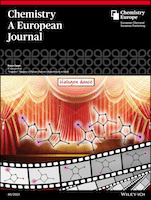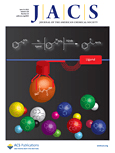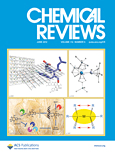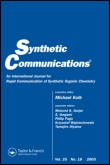
ACS Organic & Inorganic Au
Scope & Guideline
Advancing the Frontiers of Chemistry
Introduction
Aims and Scopes
- Organic Synthesis and Methodology:
The journal extensively covers developments in synthetic methodologies, including novel reactions, catalytic processes, and mechanistic studies, to enhance organic synthesis. - Inorganic Chemistry and Coordination Complexes:
Research on coordination chemistry, metal complexes, and their applications in catalysis and materials science is a core focus, showcasing new findings in the reactivity and properties of inorganic compounds. - Electrochemistry and Electrocatalysis:
The journal highlights advancements in electrochemical methodologies, including electrocatalysis, electrochemical synthesis, and studies on electron transfer processes. - Photochemistry and Photoredox Catalysis:
There is a significant emphasis on photochemical processes, including visible-light-mediated reactions and the development of photoredox catalysts for organic transformations. - Materials Chemistry and Nanotechnology:
Research related to the synthesis, characterization, and application of novel materials, particularly in the context of catalysis and energy conversion, is well-represented in the journal. - Sustainable Chemistry and Green Processes:
The journal encourages research that focuses on sustainability, including methods for chemical upcycling, solvent-free reactions, and the development of environmentally friendly synthetic routes.
Trending and Emerging
- Electrochemical Methods in Synthesis:
There is a growing trend towards the application of electrochemical methods for organic synthesis, including electrocatalysis and electrochemical transformations, which are gaining prominence due to their efficiency and sustainability. - Photoredox Catalysis:
The use of photoredox catalysis has surged, with numerous studies focusing on visible-light-driven reactions, showcasing its potential for sustainable and innovative synthetic strategies. - Sustainable and Green Chemistry Approaches:
An increase in research dedicated to sustainable chemistry practices, such as chemical upcycling and environmentally friendly synthesis, reflects a broader commitment to addressing global environmental challenges. - Mechanochemistry:
Mechanochemical approaches to organic and inorganic synthesis are emerging as a valuable area of research, emphasizing solvent-free and energy-efficient methodologies. - Advanced Materials and Nanocatalysts:
There is a notable rise in studies concerning advanced materials and nanocatalysts, particularly in catalysis and energy applications, indicating a trend towards interdisciplinary research that bridges chemistry with materials science.
Declining or Waning
- Traditional Organic Synthesis Techniques:
There appears to be a decrease in publications centered around conventional organic synthesis techniques, as researchers increasingly explore more innovative and efficient methods. - Metal-Mediated Reactions without Novel Catalysts:
Research focusing solely on traditional metal-mediated reactions without the introduction of novel catalysts or methodologies is declining, indicating a shift towards more advanced catalytic systems. - Basic Coordination Chemistry Studies:
There is a diminishing emphasis on purely descriptive studies of coordination complexes without practical applications or insights into their reactivity and utility in catalysis. - Classical Organometallic Chemistry:
The journal has seen fewer publications concentrating on classical organometallic chemistry, suggesting a trend towards integrating organometallic studies with broader applications in materials science or catalysis.
Similar Journals

JOURNAL OF THE INDIAN CHEMICAL SOCIETY
Connecting Research, Innovation, and Collaboration in ChemistryJournal of the Indian Chemical Society, published by Elsevier, stands as a cornerstone in the field of chemistry, particularly representing the rich chemical research emanating from India.
With a significant history dating back to its establishment, this journal encompasses diverse disciplines including Drug Discovery, Electrochemistry, Inorganic Chemistry, Organic Chemistry, and Physical and Theoretical Chemistry, reflecting the evolving landscape of chemical sciences.
Despite being positioned in the Q3 category across multiple quarters, the journal demonstrates promising rankings in various chemistries, highlighting its commitment to advancing the knowledge and application of chemical sciences. While currently not available as an open access journal, the Journal of the Indian Chemical Society is dedicated to providing a platform for high-quality research that fosters innovation and collaboration among researchers, professionals, and students worldwide.
With its continuous publication from 1973 to the present, it serves as an essential repository for cutting-edge findings and developments in chemistry, striving to connect academia with industry and practice.

CHEMISTRY-A EUROPEAN JOURNAL
Catalyzing Progress in the Scientific CommunityCHEMISTRY-A EUROPEAN JOURNAL is a premier academic journal published by WILEY-V C H VERLAG GMBH, specializing in the diverse fields of chemistry and catalysis, with a distinguished focus on organic chemistry. Since its inception in 1995, the journal has established itself as an authoritative resource for researchers and professionals, currently classified in Q1 in Chemistry (miscellaneous) and Organic Chemistry, reflecting its high-quality contributions to the scientific community. With an impressive impact factor and robust Scopus rankings—#33 in Organic Chemistry and #26 in Catalysis—this journal serves as a vital platform for disseminating innovative research findings and critical advancements in chemical sciences. Although not an open-access journal, it provides valuable access options for institutions, ensuring wide reach and engagement within the scientific community. As it converges into 2024, CHEMISTRY-A EUROPEAN JOURNAL remains a key resource for anyone dedicated to advancing the frontiers of chemistry research.

Nature Synthesis
Unlocking the Potential of Interdisciplinary ChemistryNature Synthesis, published by SpringerNature, is a premier peer-reviewed journal dedicated to advancing the field of synthesis in chemistry and materials science. With an impressive impact factor and categorized in the Q1 quartile for Chemistry (miscellaneous), Inorganic Chemistry, Materials Chemistry, and Organic Chemistry, it ranks prominently among its peers, reflecting its high-quality research output and relevance.
This journal provides a platform for researchers, professionals, and students to publish innovative synthesis methodologies, novel materials, and interdisciplinary approaches that push the boundaries of chemistry. Operating under an Open Access model, it ensures that research is widely accessible, fostering collaboration and engagement across the global scientific community.
Situated in the United Kingdom, Nature Synthesis is committed to contributing to the scientific discourse from 2022 to 2024, and beyond, as it continues to highlight significant advancements across chemistry domains.

Journal of the American Chemical Society
Shaping the Future of Chemistry Through Rigorous ResearchJournal of the American Chemical Society (JACS), published by the American Chemical Society, stands as a pivotal publication in the field of chemistry, facilitating the dissemination of significant research findings since its inception in 1879. With an impressive impact factor and esteemed rankings placing it in the Q1 quartile across various categories—including Biochemistry, Catalysis, and Colloid and Surface Chemistry—JACS continues to serve as a vital resource for scientists, professionals, and students alike. Researchers choose JACS for its rigorous peer-review process, ensuring high-quality content that shapes the landscape of modern chemistry. The journal's extensive scope encompasses pivotal advancements and innovative methodologies, reflecting the evolving dynamics of chemical research. With access options being traditional subscription-based, it remains crucial for institutions and individuals to engage with its latest issues to stay at the forefront of chemical science advancement.

JACS Au
Advancing the frontiers of chemistry research.JACS Au, published by the American Chemical Society, is a premier open access journal dedicated to advancing research in the rapidly evolving fields of analytical chemistry, organic chemistry, and theoretical chemistry. Since its inception in 2021, JACS Au has quickly established itself as a leading platform for high-quality research, reflected in its Q1 rankings across multiple categories for 2023, including Organic Chemistry and Analytical Chemistry. The journal focuses on innovative methodologies and applications that drive the discipline forward, making it an essential resource for researchers, professionals, and students alike. With an impressive Scopus ranking, consistently placing in the top tiers of its categories, and offering a broad range of access options for its readership, JACS Au aims to foster collaboration and disseminate transformative ideas that impact the global scientific community. Exploring diverse topics within chemistry, this journal provides a vital conduit for sharing groundbreaking research and enhancing scientific dialogue.

CHEMICAL REVIEWS
Charting the Course for Future Chemical Discoveries.Chemical Reviews, published by the American Chemical Society, is a leading journal in the field of chemistry, renowned for its comprehensive and authoritative reviews on a wide range of chemical topics. With its ISSN 0009-2665 and E-ISSN 1520-6890, this prestigious journal has maintained a remarkable trajectory since its inception in 1924, continuously contributing to advancements in the chemical sciences. As a Q1 journal in the Chemistry (miscellaneous) category, it stands at the forefront of research, boasting an impressive Scopus rank of #1 out of 408 in the field of General Chemistry, positioning it within the top 1% of the field. Chemical Reviews offers invaluable insights and serves as a critical resource for researchers, professionals, and students alike, facilitating knowledge exchange and fostering innovation in chemistry. While currently not open access, it remains a vital component of the scientific community, gathering an extensive readership base eager for the latest developments, methodologies, and theoretical frameworks in this dynamic discipline.

CCS Chemistry
Elevating the Dialogue in Chemistry Through Open ScholarshipCCS Chemistry, published by the esteemed Chinese Chemical Society, is a leading open-access journal dedicated to advancing the field of chemistry. Since its inception in 2019, the journal has rapidly gained recognition, achieving a remarkable impact factor that places it in the prestigious Q1 category in Chemistry (Miscellaneous) as of 2023. With a Scopus ranking of #41 out of 408 in General Chemistry, CCS Chemistry represents the top 10th percentile in its category, reflecting its commitment to high-quality research and innovation. The journal serves as a vital platform for researchers and professionals to share their findings, showcase cutting-edge methodologies, and engage with the latest developments in various chemistry subfields. Accessible to a global audience, CCS Chemistry ensures that groundbreaking research is available without barriers, making it an indispensable resource for students and academics aiming to stay at the forefront of chemical sciences. For further details, submissions, and access to published articles, please visit the journal's website.

SYNTHETIC COMMUNICATIONS
Exploring New Frontiers in Synthetic ReactionsSynthetic Communications, published by Taylor & Francis Inc, stands as a pivotal resource in the field of organic chemistry since its inception in 1971. With an ISSN of 0039-7911 and an E-ISSN of 1532-2432, this journal has established a commendable reputation, holding a Q3 ranking in organic chemistry by 2023, reflecting its contributions to the discipline and positioning it within the 50th percentile according to Scopus rankings. Targeted towards researchers, professionals, and students alike, Synthetic Communications aims to disseminate significant advancements in synthetic methodologies and reactions, facilitating the exchange of innovative ideas and enhancing collaborative efforts in the scientific community. Although not an open-access journal, it offers a wealth of valuable research content that is crucial for anyone dedicated to pushing the boundaries of organic chemistry.

RUSSIAN CHEMICAL BULLETIN
Innovative Research. Timeless Impact.RUSSIAN CHEMICAL BULLETIN, published by SPRINGER, serves as a pivotal resource in the field of general chemistry, covering a wide array of topics that impact both theoretical and applied chemistry. With an ISSN of 1066-5285 and a presence since 1993, this journal provides a platform for disseminating significant research findings, practical applications, and novel methodologies within the broader chemistry community. While it currently holds a Q3 ranking in the Chemistry (miscellaneous) category and occupies the 230th position out of 408 in the Scopus rankings, its reputation continues to grow, fostering collaboration and innovation among researchers and professionals alike. Although the journal does not offer an open-access model, it is committed to making findings accessible within the academic community, ensuring that valuable insights can inform future research. With an anticipated convergence of studies extending to 2024, the RUSSIAN CHEMICAL BULLETIN remains an essential reference for those dedicated to advancing chemical science.

Catalysts
Unleashing Potential: Your Gateway to Catalysis KnowledgeCatalysts is a leading academic journal in the field of catalysis, published by MDPI since 2011 and well-regarded for its commitment to open access publishing. Based in Switzerland, this journal delivers innovative research and reviews that span various aspects of catalysis, from heterogeneous and homogeneous catalysis to the development of novel catalytic systems. With a commendable impact factor and a notable Q2 ranking in both Catalysis and Physical and Theoretical Chemistry categories, Catalysts plays a critical role in advancing the scientific discourse in these fields. The open-access model ensures that all research articles are readily accessible to researchers and professionals worldwide, fostering collaboration and accessibility to high-quality scientific literature. As the journal continues to publish cutting-edge studies up to its convergence in 2024, it remains an essential resource for anyone involved in catalysis research, from seasoned professionals to emerging scholars.